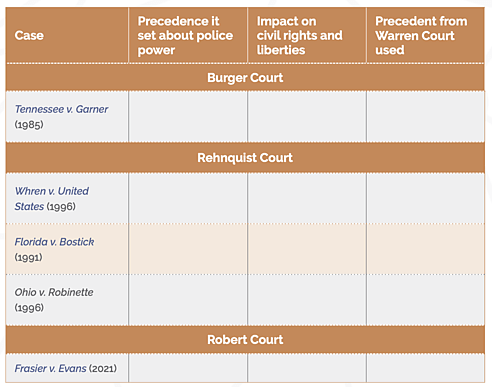Overview
The police are the arm of enforcement of state and federal law. Does the law apply equally to everyone? Is everyone assumed innocent until proven guilty? This lesson will explore the role of police discretion and qualifi ed immunity considering the Warren Court’s legacy decisions.


